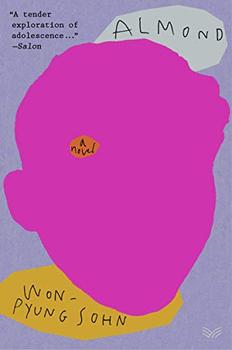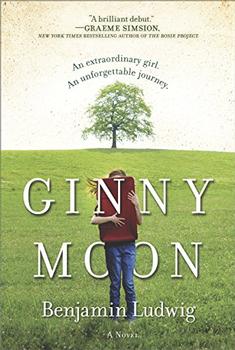Summary | Excerpt | Reading Guide | Reviews | Beyond the book | Read-Alikes | Genres & Themes | Author Bio

In When We Were Vikings by Andrew David MacDonald, readers are first introduced to Zelda on her twenty-first birthday. She almost immediately informs us that her father departed just after she was born; that her mother drank heavily while pregnant with her, thereby affecting her cognitive development; and that she lives with her older brother Gert, who loves her and takes care of her. She is also obsessed with Vikings, to the point where she can speak Old Norse and quote verbatim from Kepple's Guide to the Vikings. Aware of Zelda's passion, her developmental psychologist gives her an article about an ancient skeleton long thought to be that of a Viking warrior, which turned out to be female. While this is meant to inspire her to live her own life and not be so dependent on Gert—to create her own "saga"—she takes it a bit farther, deciding to become a modern-day Viking warrior herself. As she proceeds with her quest, she discovers her brother is in trouble, and uses her newfound confidence and bravery to try to save him, unwittingly putting them both in danger.
In many ways, When We Were Vikings is a standard coming-of-age novel, where a young woman on the edge of adulthood begins to discover who she really is and what she wants out of life. Over the course of the book, she desires what many young people do—basic things like landing a job and engaging in sex for the first time. What makes the book a stand-out, though, is the author's depiction of Zelda; she's a character most readers will find fascinating. Her determination to do the right thing (and sometimes get into trouble because of it) makes her an appealing protagonist, and MacDonald writes her voice so convincingly that it's hard not to root for her.
The plot, too, is intriguing; because Zelda is narrating and doesn't see the big picture, we only gradually become aware of the intricacies of Gert's life and the sacrifices he has made to ensure Zelda thrives. This part of the story has the potential to really draw readers in, particularly as it becomes apparent that Zelda doesn't understand just how ruthless Gert's "friends" truly are.
Much of the novel concerns Zelda's intimate experimentation with Marxy, a young man she's met at her community center who also has cognitive issues. The author deserves kudos for showing that those with impairments often have physical wants and needs just like most other humans on the planet, thereby normalizing his characters. Unfortunately, there's so much discussion around this topic that the middle of the book bogs down somewhat, and some of the sexual scenes between the couple are perhaps the most awkward I've ever read. I personally wasn't bothered by the explicitness of these passages, but I can easily imagine others might be. Also, throughout the novel, the characters frequently use rather foul language and there's a certain amount of violence against women, either of which could be off-putting for some.
My primary criticism of the book is that the protagonist's narrative voice is extremely reminiscent of some other young characters in contemporary literature such as Christopher Boone in The Curious Incident of the Dog in the Night-Time and Oskar Schell in Extremely Loud and Incredibly Close. Zelda's speech pattern and way of thinking are written so similarly that one is tempted to describe MacDonald's novel as derivative. Although Zelda's circumstances are wildly different and the book as a whole has a much darker feel than these earlier works, there are enough similarities that one can't help but draw parallels.
Overall, When We Were Vikings is a fast, entertaining read, and one that I would recommend to most who are looking for an interesting book featuring a different kind of heroine. Those who enjoyed the works mentioned above will almost certainly like this novel as well. It would also be a great selection for a book group; its themes surrounding the experience of living with cognitive differences would make great fuel for discussion.
![]() This review
first ran in the February 19, 2020
issue of BookBrowse Recommends.
This review
first ran in the February 19, 2020
issue of BookBrowse Recommends.

If you liked When We Were Vikings, try these:

by Sohn Won-pyung
Published 2021
The Emissary meets The Curious Incident of the Dog in the Nighttime in this poignant and triumphant story about how love, friendship, and persistence can change a life forever.

by Benjamin Ludwig
Published 2017
Told in an extraordinary and wholly unique voice that will candidly take you into the mind of a curious and deeply human character.
Your guide toexceptional books
BookBrowse seeks out and recommends the best in contemporary fiction and nonfiction—books that not only engage and entertain but also deepen our understanding of ourselves and the world around us.